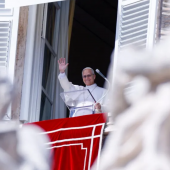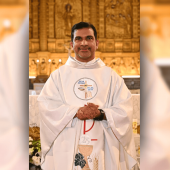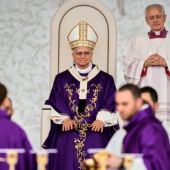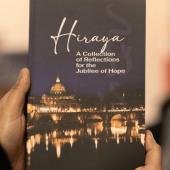Pope Leo XIV inspires pilgrims with message of faith, healing, and hope at General Audience
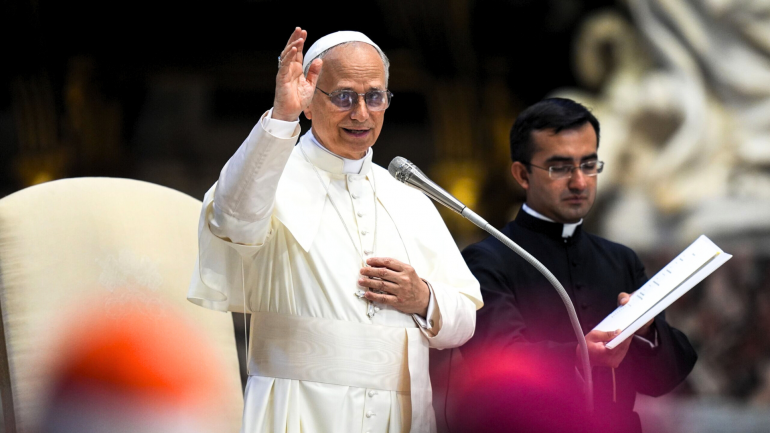
Under the bright summer sun at Saint Peter’s Square, Pope Leo XIV addressed thousands of pilgrims on Wednesday morning, June 25, continuing his Jubilee 2025 catechetical series with a reflection that struck at the heart of human suffering and divine hope.
Centering on the Gospel story of the bleeding woman and the raising of Jairus’ daughter (Mark 5:21-43), the pope offered a pastoral challenge and a source of encouragement for those burdened by fear, isolation, and despair.
The Holy Father began by acknowledging what he described as one of the widespread ailments of our time: “the fatigue of living.” He spoke of how the complexities and emotional weight of daily life often lead people to shut down, to withdraw into themselves, hoping that by avoiding reality, things might eventually improve. Yet, as the pope reminded the faithful, true healing only begins when we face reality head-on and do so in the company of Christ.
Turning to the Gospel account, the pope highlighted the courage of the bleeding woman—ostracized, judged, and isolated for twelve long years—who dared to break through the crowd just to touch Jesus’ garment.
The pope emphasized that her faith made a significant difference. Quoting Saint Augustine, he remarked, “The crowd jostles, but faith touches.” This simple yet profound act of faith opened her to Christ’s healing power, reminding all present that even silent, hidden acts of trust can awaken grace.
The pope then reflected on the figure of Jairus, the synagogue official, whose daughter lay dying. Despite hearing the devastating news of her death, Jairus continued to hope. Jesus’ words to him, “Do not be afraid; just have faith,” resounded as the core message of the catechesis.
The Holy Father encouraged all those present not to let fear extinguish their trust in God, especially during times of personal crisis and loss.
The pontiff also drew attention to a small but deeply human detail in the Gospel. After raising the young girl from the dead, Jesus asked the family to give her something to eat, a gesture that reflects Christ’s closeness to everyday human needs.
Extending this reflection, the pope invited parents and communities to ensure that children and young people today receive not only physical sustenance but also “spiritual nourishment,” especially when facing inner crises.
In a heartfelt post-catechesis appeal, the pope expressed deep sorrow over the recent terrorist attack on the Greek Orthodox community at the Church of Mar Elias in Damascus, Syria, which claimed innocent lives and left many wounded.
The Holy Father offered prayers for the victims and called for global solidarity with all Syrians still suffering from the scars of prolonged conflict. He also voiced concern over the ongoing tensions in Iran, Israel, and Palestine, invoking the timeless words of the prophet Isaiah: “Nation shall not lift up a sword against nation, neither shall they learn war anymore” (Is 2:4).
Calling for an end to violence and revenge, the Pope urged world leaders to choose dialogue and diplomacy as the only sustainable path toward peace.
As the audience drew to a close, Leo XIV extended warm greetings to the English-speaking pilgrims present, beginning with those from Asian countries—including China, India, Indonesia, the Philippines, and South Korea—before acknowledging visitors from Australia, Malta, Eswatini, Ghana, Kenya, South Africa, and the United States, among others.
The Holy Father offered a special greeting to members of Citizens UK, a Catholic social movement known for its grassroots work in community organizing and social justice advocacy.
With the month of June nearing its end, the pope entrusted all pilgrims to the Sacred Heart of Jesus, encouraging a renewed spirit of trust and faith as they returned to their homes and missions.
“Let us learn from that woman and from that father,” the pope concluded. “Let us go to Jesus. He can heal us; He can revive us. Jesus is our hope!”
Radio Veritas Asia (RVA), a media platform of the Catholic Church, aims to share Christ. RVA started in 1969 as a continental Catholic radio station to serve Asian countries in their respective local language, thus earning the tag “the Voice of Asian Christianity.” Responding to the emerging context, RVA embraced media platforms to connect with the global Asian audience via its 21 language websites and various social media platforms.









